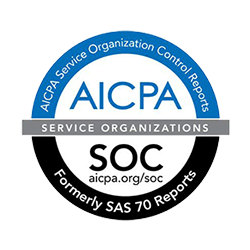Best Mid-Term CD Rates on Raisin in August 2025
✓ Federally regulated banks and credit unions. No fees. $1 minimum deposit.
✓ 24/7 online access to funds.
Compare Mid-Term CD Accounts on Raisin
$
Bank
Product
APY
Maturity

mph.bank, a division of Liberty Savings Bank, F.S.B., Member FDIC
Callable CD
4.30%
60 months
$2,150.00

Always.bank, a division of 22nd State Bank, Member FDIC
High-Yield CD
4.25%
3 months
$2,125.00
Raisin is not an FDIC-insured bank or NCUA-insured credit union and does not hold any customer funds. FDIC deposit insurance covers the failure of an insured bank and NCUA deposit insurance coverage covers the failure of an insured credit union.
Benefits of Certificates of Deposit (CDs)

Certificates of deposit, also known as CDs, are a type of deposit account offered by banks and credit unions. CDs allow you to earn interest on your money like other deposit accounts, such as a savings account, but there are some key aspects that make CDs unique. Notably, CDs tend to offer among the highest available interest rates of all banking deposit products.
Unlike savings accounts or money market accounts, you can deposit a set amount of money into your CD account and commit to leaving your money there for a fixed period of time. Terms may last as little as three months, or as long as five years (60 months) or even longer. In return, you'll earn a fixed amount of interest based on a predetermined interest rate. The rate of a CD typically does not change during the term, which is why you may see the product called a fixed-term CD. Another type of CD is a no-penalty CD, which gives the owner more flexibility to withdraw funds before the CD's maturity date.
When the CD term is up — when the product has reached maturity — you’ll be able to withdraw your original balance plus any interest earned, or opt to rollover all or part of those proceeds into a new CD with a new term. A key benefit of opening a CD is you’ll know exactly how much of a return you’ll receive when your money is ready to withdraw at the maturity date you selected.
CD Accounts vs. High-Yield Savings Accounts
CD Accounts | VS. | High-Yield Savings Accounts |
Fixed interest rates depending on the term length | VS. | Interest rate may be subject to change based on market conditions and financial institution |
Some banks may require high minimum deposits for CDs; $500 is common (Raisin does not) | VS. | Some banks may require high minimum deposits and charge fees if you dip below the minimum (Raisin does not) |
With fixed-term CDs, customers may be charged a penalty for early withdrawal. No-penalty CDs do not have early withdrawal fees | VS. | Some banks may place limits on frequency of withdrawals from high-yield savings accounts (Raisin does not) |
Learn More About Certificates of Deposit
More About Mid-Term CD Accounts
How to Choose a Mid-Term CD
Selecting the right mid-term certificate of deposit means calculating your potential interest earnings for a period between one and three years.
Through Raisin, you can access some of the best mid-term CD rates available nationwide — all from federally regulated banks and credit unions.
When you're selecting the mid-term CD that's right for you, there are a few factors you should take into consideration.
Interest rate and APY: Possibly the most important is the CD's Annual Percentage Yield (APY). This value represents the base interest rate of the CD as well as potential interest earnings based on how the interest is compounded, offering you a clear view of what your earnings could look like.
Minimum deposit: Some institutions may require a minimum deposit to open an account or to earn a specific APY. With Raisin, that minimum deposit is always $1.
Fees and penalties: Because CDs have a fixed term, there are often penalties with early withdrawal. Always be sure to understand your product's terms before depositing funds.
Compound interest schedule: Interest can compound at different frequencies for different CDs. Be sure to take a look to see if the CD you're interested in compounds interest daily, monthly, or annually, as this can impact your earnings.
How Does a CD Account Work?
Certificates of deposit are relatively simple savings tools as long as you understand the product's term and interest rate. Let's take a look at how a CD works, how it differs from other types of cash deposits, and what safety and security measures can help you make sure your investment is protected.
Fixed Term And Interest Rate
What sets a CD apart from other deposit products is that it has a fixed term and interest rate. This means that when you open a certificate of deposit, you agree to deposit your cash for a set period of time and, in exchange, earn a fixed interest rate for the entirety of that term. These terms can range from one month to several years, which can help you secure guaranteed returns on your cash — something few other investments can promise.
Because of their fixed terms, CDs tend to have the top interest rates among deposit products, making them a potentially great option during periods of interest rate volatility.
Maturity
The date your certificate of deposit's term ends is known as its maturity date. Once your funds reach maturity, there are usually a few options available to you.
Certificate of deposit rollover: Rolling over your CD into a new one with a new term can mean extending your earnings and continuing to earn. Once your CD rolls over, keep in mind that the interest rate may be different than that of your previous term.
Certificate of deposit withdrawal: You may also withdraw your funds and interest earned at the end of your CDs terms, offering you the opportunity to spend your cash or invest elsewhere.
Types of CDs
- Fixed-term CDs: The most common certificate of deposit offering, fixed-term CDs offer a fixed interest rate for a set term, with penalties for withdrawal before the end of that term.
- No-penalty CDs: No-penalty CDs have a similar structure to fixed-term CDs, with a set interest rate for a set period of time. However, they're typically more flexible, allowing for withdrawal prior to the maturity date without a penalty. In exchange, these CDs typically have slightly lower interest rates.
Liquidity
- CD accounts: Certificates of deposit come with fixed terms, meaning that funds generally cannot be accessed during that period without incurring penalty feeds. These deposits make more sense for longer-term savings that you want to grow but not necessarily access during the CD's term.
- High-yield savings accounts: You may have limits on the number of withdrawals that can be made in a month (accounts on Raisin have no monthly withdrawal limits), but high-yield savings accounts are considered more liquid than certificates of deposit.
How to Choose a CD Account
APY.
Annual percentage yield (APY) is one of the most important figures associated with a CD account or certificate because it dictates how much you’ll earn on your money. The higher the rate, the more you’ll make over time. A CD’s rate is fixed over its term length; it won’t vary up or down. This means your rate (and, by extension, your return) is insulated against the changes in market conditions that might impact a variable-rate product like a money market account. Bear in mind that APY is annualized, meaning that it tells you the expected performance over a year-long period. (A 3-month CD with a 1% APY is not going to return 1% interest in 3 months.) But APY helps with comparing CDs of different term lengths because it normalizes the rates for comparison.
Minimum deposit.
Different CDs have different rules for the minimum amount required to open an account — varying from as little as $1 to as high as several thousand dollars. The CD accounts and certificates available through Raisin can be opened with as little as $1.
Fees (or lack thereof).
Some financial institutions might charge monthly maintenance fees, which can quickly eat into your savings. Make sure you understand any fees that are associated with an account — or choose one that doesn’t charge any. There are no fees to open or maintain a CD account or certificate through Raisin.
Withdrawal penalties.
CDs are not considered liquid, which means you cannot withdraw or transfer funds out of a CD freely. There may be penalties associated with early withdrawal. But the specific terms — how the penalty is determined — may vary by institution. Consult the product terms for a CD you’re considering to learn how withdrawal penalties are handled. Options like no penalty CDs (see above) may allow you to avoid the risk of incurring withdrawal penalties.
What is Raisin?
With Raisin, you can access an exclusive network of banks and credit unions offering top rates on no-fee savings products. Find, fund, and manage high-yield savings accounts, money market deposit accounts, and CDs from multiple institutions, all from a single login.

Safety
Raisin partners exclusively with federally regulated institutions with comprehensive cybersecurity programs. Raisin itself invests in a suite of state-of-the-art cybersecurity measures including certifications and assessments, data monitoring and data encryption.
Choice
Choose from a diverse selection of savings products offering flexible terms and some of the most competitive interest rates. You can easily find the right product or mix of products for you.
Convenience
One login to hold all your deposit products. Simplified statements. Easy access to manage your funds – all through a streamlined digital platform.
Security Is Our Top Priority

Raisin is focused on cybersecurity
At Raisin, we invest in a variety of technologies to protect our customer’s data, privacy and transactions. These include multi-factor authentication, encryption, and web application firewall advanced internet protection technologies. Raisin is a SOC 2 certified organization, which means we have met the requirements outlined by the American Institute of Certified Public Accountants (AICPA) to ensure that we have the controls in place to keep customers data secure and private.
Open an Account in Minutes
Select
the right product for your savings goals.

Register
with an email address and password, then verify your identity and bank information.
Fund
the savings products you add to your new Raisin login.
How Raisin Compares
With Raisin | VS. | With traditional banking |
One secure login guards your personal data and safely allows you to tap into yields from multiple savings products. | VS. | Multiple signups, savings accounts, and products at different institutions each require you to provide sensitive personal information. |
The platform brings together diverse and competitive savings products, including CDs with a range of terms, that increase your earnings potential. | VS. | There are fewer product options, possibly limiting your savings potential. |
Only one login is required. You manage all your chosen savings products through the Raisin platform. | VS. | By opening new accounts at multiple institutions, you get more statements, must remember more passwords, and waste time. |
FAQs
Raisin is a free digital platform that gives savers unparalleled access to a variety of deposit products through the convenience of a single login, helping you unlock the growth potential of your cash savings.
With the Raisin platform, you can fund deposit products offered by federally regulated banks and credit unions with a wide range of maturities and APYs (annual percentage yield), allowing you to build a savings strategy to suit your earning and liquidity needs.
Raisin is not a bank or credit union. It provides the digital “storefront” where banks and credit unions can promote their deposit products.
Raisin is operated by Raisin Solutions US LLC, a 100% subsidiary of Raisin SE, a trailblazer for open banking in the deposits and investments space. In the U.S., Raisin helps banks and credit unions improve their deposit funding by offering national reach for their retail deposit products, and provides savers with better access, more choice and higher convenience when evaluating savings products from federally regulated banks and credit unions.
- High-yield Savings Account (HYSA). As its name indicates, this account type functions like a traditional savings account—with typically no restrictions on depositing and withdrawing funds—but earns interest at rates that are higher than the national average for standard savings accounts.
- Money Market Deposit Account (MMDA). Also known as a money market account or MMA, this type of savings account offers a varying rate that allows you to earn interest on your funds with maximum flexibility for withdrawals. Like a HYSA, an MMDA offers features of a traditional savings account with typically higher returns.
- No Penalty CD. Through the flexibility of a No Penalty CD, you can lock in a competitive rate for a fixed term with the option to make a full withdrawal without having to pay a penalty for the early termination. Terms and conditions may vary by product. Please see specific product terms for more details.
- Fixed Term CD. With this longstanding savings vehicle, funds are held for a fixed term, and a competitive interest rate provides safe, predictable earnings. In contrast to No Penalty CDs, typically you are charged a fee if you do not complete the full term of the Fixed Term CD.
Interest (or dividend in the case of credit union savings products) is compounded daily and posted to your account monthly.
At Raisin, cybersecurity is our priority. Raisin is a SOC 2 certified platform, meaning it has been validated by outside auditors across five (5) key information security principles. We also use a variety of measures to protect our customers' data, privacy and transactions, including:
- User authentication. The Raisin platform uses multi-factor authentication combined with leading authentication technology to validate our customers’ identities.
- Data encryption. Your personal information is encrypted in-transit and at rest using advanced cryptographic security algorithms.
- Site protection. Web application firewall advanced internet protection technologies are implemented to protect Raisin.com from malicious actors, botnets and denial of service attacks (DDOS).
- Monitoring. An always-on information security monitoring platform detects and alerts us to information security events.
- Assessments. Our platform undergoes vigorous security assessments and testing throughout the lifecycle of application development, from architecture planning to production phases.
Creating a Raisin login is easy, requires no credit check, and typically takes less than five minutes. Here’s how:
- View the offers on our savings marketplace and select a savings product offered by one of our partner banks and credit unions.
- Follow prompts to enter your email and create a password.
- Complete a simple online application and, after successful identity verification, link a bank account from which to fund your first deposit.
- Start earning interest as soon as your money is received by the bank or credit union offering the savings product you selected.
Any questions or concerns? Email us at support.us@raisin.com.
All deposits and withdrawals are completed within one to three (1-3) business days. After the initial deposit a withdrawals limitation for the first few business days may exist.
Business days are Monday through Friday excluding U.S. bank holidays.
For products offered by banks, all necessary registration is handled when you become a Raisin customer. One of the many benefits of our platform is that you can open a single account and earn competitive interest rates from banks in the Raisin network. When you select and fund a savings product offered by a credit union, there is an additional step of becoming a member. Raisin makes that process quick, easy and free. You still have one Raisin login and can view all your savings products in one convenient dashboard.
The current APY for your savings products can always be viewed on the Account Overview page when you are logged in to Raisin. This information also appears on monthly statements.
You cannot currently link your Raisin login to a third-party app, but we may offer this feature in the future. For now, you will not be able to link your selected savings product to a third-party app even if the bank or credit union offering that product does so outside of the Raisin platform.





.png)